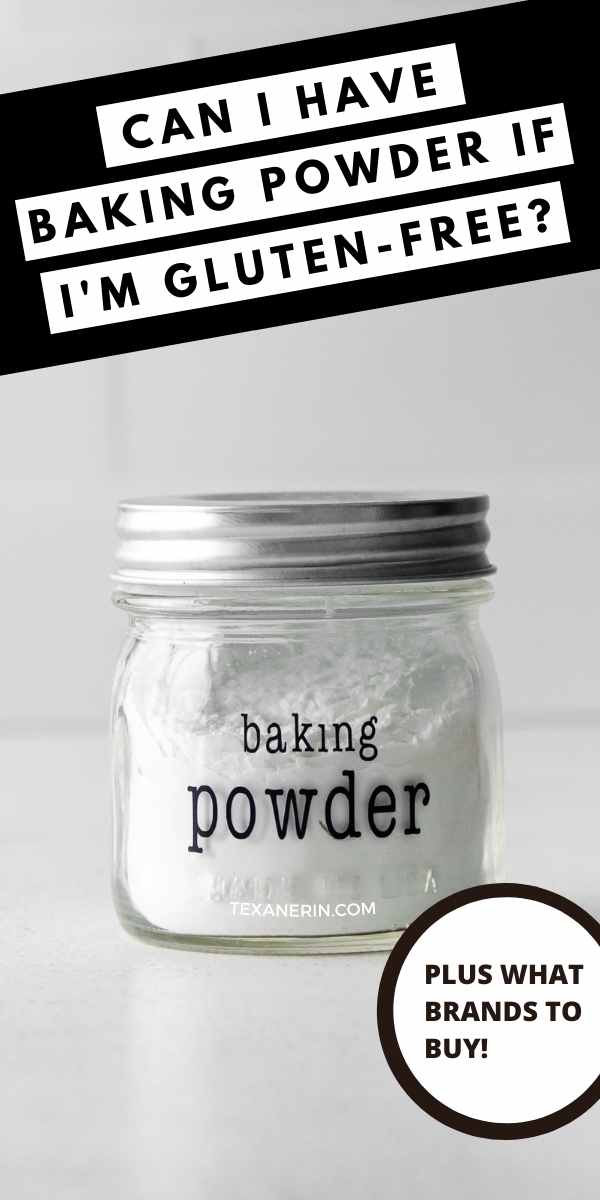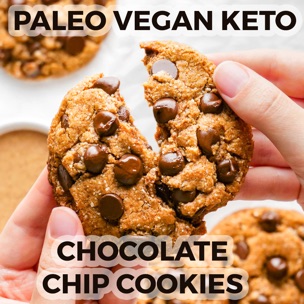Is baking powder gluten-free? If the ingredients in your baking powder are sodium bicarbonate, an acid, and cornstarch, it will always be gluten-free. However, there are different variations of baking powder, and you will have to check the brand you buy to ensure that it’s gluten-free as some manufacturers use different types of starch in place of cornstarch.
What is Baking Powder?
Baking powder is often mistaken for baking soda which is why this explanation is vital. Baking powder is a dry chemical leavening or rising agent that helps baked goods rise. Without it, baked treats would be flat, hard, and most definitely unappealing.
Baking soda (bicarbonate of soda), on the other hand, is one of the ingredients of baking powder with a milder flavor. For every cup or so of flour, a baking recipe will normally ask for a quarter teaspoon of baking soda. On the flipside, baking recipes will require about a teaspoon of baking powder for each cup of flour.
Both baking powder and baking soda are leavening ingredients that make baked goods airy. Baking soda may also be used as a natural and effective cleaning agent while baking powder is mostly used in the baking industry. Here are the 2 types of baking powder:
• Single-acting baking powder
This is what’s sold everywhere (as far as I know) in Europe. It’s not commonly sold in the US. I believe you would have to seek it out.
It reacts right away when used with moist ingredients that contain acid. This type of batter must be baked right away and should not be left out unattended for an extended amount of time.
• Double-acting baking powder
That is what’s sold in the US. It begins reacting when it is combined with the wet ingredients in your recipe. It also contains a “high heat” acid, which will be activated by heat while your baked goods are baking. This implies that while it bakes, it undergoes a second chemical reaction, resulting in a lighter texture.
So, is baking powder gluten-free?
The answer is yes, but this may not always be the case. If any of the ingredients used to make baking powder has gluten, then the baking powder will not be gluten-free. To explain this better, let’s look at its ingredients.
Baking powder has three main ingredients which include:
• The base, which is normally baking soda.
Baking soda is naturally gluten-free. I have a whole article about it here if you’re interested → Is Baking Soda Gluten-free?
Baking soda is a white dry powder made of sodium bicarbonate. It is manufactured using a strict scientific process known as the Solvay process, and it comes nowhere near any gluten-containing products.
When heated over 122 °F (50 °C) and mixed with an acid, it releases carbon dioxide, which is what makes your batter or dough expand.
• An acid
Is the acid also gluten-free? Yes. Some of the acids used in baking powder are sodium aluminum sulfate, sodium aluminum phosphate, sodium acid pyrophosphate, and monocalcium phosphate.
Sometimes people wrongly assume that the most common acid sources are tataric acid or cream, but that’s not the case. These acids are chemically synthesized, refined, and dried in a controlled laboratory setting with no gluten-containing ingredients.
• A filler, which is typically a form of starch
The filler prevents the acid and base from reacting to each other pre-maturely. Is it also gluten-free? Most times.
Nowadays, manufacturers use regular cornstarch or potato starch to make baking powder. Both of these products are gluten-free, which is why we can say the vast majority of baking powders are gluten-free.

Read the labels!
Although corn starch and potato starch are inherently gluten-free, they are not the only types of starch used in making baking powder.
As such, always pay attention to labels before buying baking powder because it could contain additional starches like wheat starch (which is NOT gluten-free).
⚠️⚠️⚠️ Alsa baking powder, for example, contains wheat starch and is therefore not gluten-free.
Cross-contamination
Some brands of baking powder might be manufactured in facilities that use gluten products in the production of other products. And some brands might be manufactured using the same equipment as gluten-containing products.
A fast-moving production line, even if subject to high levels of quality control, could be fertile ground for cross-contamination with gluten ingredients. There’s the consideration that even in the most highly automated facilities, there is a human element.
All it takes is for one person working with gluten-containing ingredients to neglect their hygienic practices (like not replacing gloves between products).
Also, the equipment may or may not be cleaned when they switch from product to product. This could lead to cross-contamination.
Some manufacturers are extremely careful when switching from a dairy to a non-dairy product, but some, unfortunately, aren’t.
Food processing equipment is difficult to properly clean unless the manufacturer dismantles absolutely everything. I think it’s safe to assume that this is not usually done.
So let’s look at some brands that have been tested to be safe!
Gluten-free baking powder brands
All of the following are labeled as gluten-free. For products to legally be labeled gluten-free in the United States, they must first meet the requirements of the FDA of being less than 20ppm gluten.
When products are tested to be less than 20ppm gluten, they may be labeled as such. This is a level that is even safe for celiacs.
This information is true at the time of writing in January 2022, but things can always change! Check your labels.
- Argo
- Bob’s Red Mill
- Clabber Girl
- Davis
- Goldbaums
- Hain Pure Foods Featherweight
- I’m Free
- Royal
- Rumford
Gluten-free recipes with baking powder
Once you have yourself some gluten-free baking powder, try one of these delicious gluten-free recipes!
- Paleo Vegan Brownies
- Kladdkaka (Swedish sticky chocolate cake)
- Keto Cheese Crackers
- Paleo Lemon Cookies
- Gluten-free Cornbread
- Almond Flour Sugar Cookies
- Pancake Without Milk – make sure to choose the gluten-free option here!
I hope I’ve answered your question on whether baking powder is gluten-free or not! If you have any other questions, feel free to leave them below and I’ll be happy to answer. :)


